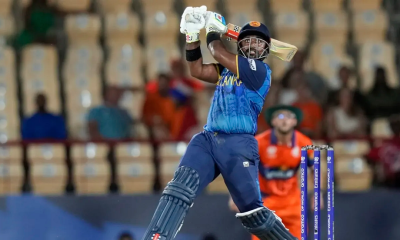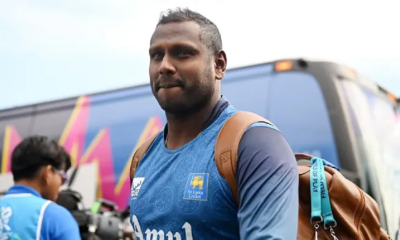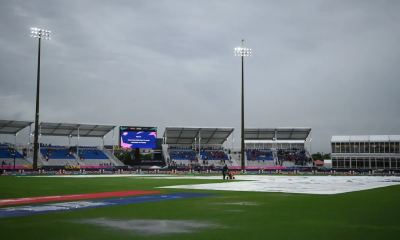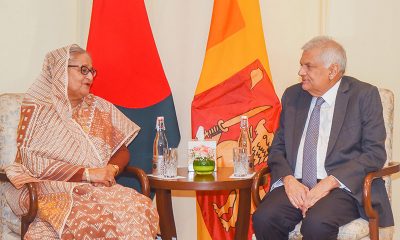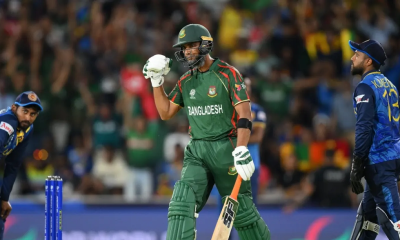Features
How did we become a lawless State?
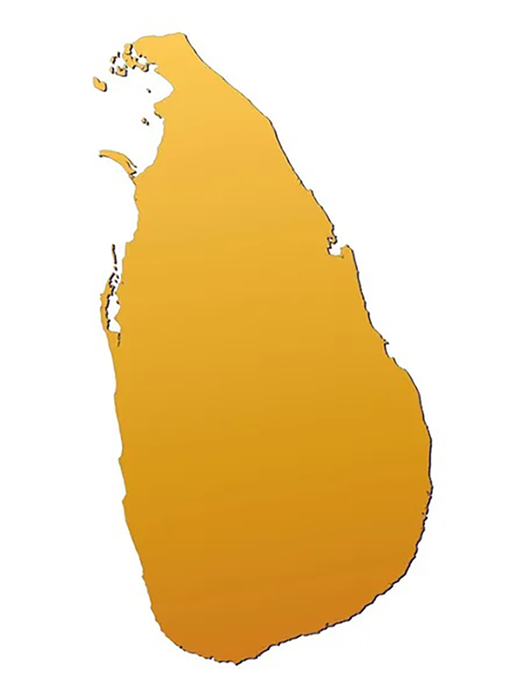
Talk given by Rajan Hoole at the release of the book, Democracy Stillborn, at Trimmer Hall, Jaffna, on 11 Nov., 2022. The fellow speakers were Devanesan Nesiah, Ahilan Kadirgamar, Swasthika Arulingam and Kirupaimalar Hoole. The meeting was chaired by Mahendran Thiruvarangan
First, a message from K. Sritharan, who was with Rajani Thiranagama and Rajan Hoole in the University Teachers for Human Rights (Jaffna).
“The rule of law is in decline and has provoked much discussion, even in developed countries, where it has been the norm for over a hundred years. The West, which continually championed democracy and the rule of law itself, is facing a major crisis as populist right-wing politics make inroads into the mainstream. In the US, the legitimacy of institutions, which are crucial for accountability and the rule of law, are questioned, and conspiracy theories of utter distrust of authority become the fare among the masses. This crisis can lead to many upheavals. We may eventually overcome and stabilize with more meaningful and broadened democratic formations. But the path towards that may not be smooth and the trend shows the moral high ground is ill-defined.
But, as an island nation, we have gone through major crisis after crisis and in the process have ruined and bankrupted our country. Many youths are now looking for the root causes for this plight. Our modern history is one of cohabitation with dominant colonial powers. During the British period, a cause of major social transformation was the colonial state formation. The vested interest of the British Colonial project, brought in institutional mechanisms and nurtured a political class to manage them. The question is how the ruling elite of Ceylon used those institutions. In the balance, was it to enhance the interest of the people, or in pursuit of their short-term interests? Did their hold on power unleash forces which, of their own nature, created a series of fault lines by a perversion of nation building? In addressing these, we need to charter a new path. Of course, this cannot be done in isolation but it is necessary to identify the internal developments, and form broad solidarities that would get us out of this impasse.” End of message.
About Social Democracy
Arunachalam, was the first civil servant who radically stood for social democracy. He wanted the British officers, responsible for excesses during the Sinhalese-Muslim riots of 1915, punished, according to the law. In 1920, the British authorities, supported by Sinhalese nationalists, undermined the man hitherto deemed indispensable, and put him out to grass. Provoked by the economic collapse of 201, the Aragalaya protesters realised the state of acute lawlessness and got rid of the President and Prime Minister. We have Mahinda Rajapaksa finally admitting his mistakes, all implicitly permitted under the Constitution, and pleaded for another chance. Mahinda Rajapaksa comes in a line of leaders charged with murder, not only of journalists but also of war crimes and robbery. There were, of course, two parties to the war. But the Government’s intransigence made it intractable.
The law was simple, but we have muddled and obscured it. Had we followed it, we could have avoided this present impasse. Article 29 of the Constitution of 1948 had the provision, not to ‘Make persons of any community, or religion, liable to disabilities or restrictions to which persons of other communities or religions are not made liable …’ Quite simply it means treat everyone equally. The Government, being in a minority after the 1947 elections, used threat and bribery to disqualify Plantation Tamils from citizenship. What we may forget today is the Sinhalese opposition, left and liberal, for example H. Sri Nissanka, were united and firm in standing by the Plantation Tamils.
Britain’s gift to the Sinhalese leaders of cancelling the 1941 elections, gave them an eight-year free ride of power without an electoral mandate from 1940, during which time they were allowed to colour the future constitution. It led to indifference and apathy among opponents of the Citizenship Bill. Neither the Government nor the Supreme Court offered a cogent reason for the disenfranchisement of estate workers. The Supreme Court held that since Article 29 had no reference to race, taking away the franchise of a community was not a violation of Article 29, it was administrative. The Government was nervous when the Plantation Tamils appealed to the Privy Council.
The Privy Council first retreated because Parliament by defining citizenship indirectly by ancestry, had evaded the principle of equality in 29 (2). It however passed the Bill misquoting the Soulbury report which actually made clear that over 80 percent of Plantation Tamils were in 1941 either born in Ceylon or had resided over 10 years.
Lanka is a beneficiary of common laws, the Roman-Dutch and English. Good common law whatever its origins is transposable. Lanka learnt nothing from them. Answering the challenge to the Citizenship Act in 1951, Chief Justice Edward Jayatileke rejected equality and ruled that whatever Parliament passes has to be obeyed. However, Chief Justice Abrahams replying to DSG Wijewardene asserting Parliament’s supremacy in 1937 said, that a new law must accord with those that preceded it ‘so that there be no repugnance but a concordancy in all the parts thereof.’
Bills against the Plantation Tamils
We had Roman-Dutch law and English common law, both of which with different emphases, stood for common right. Both sets of law rejected the Citizenship and Franchise Acts from several angles. Having accepted the Donoughmore Bill in 1929 which promised the vote to everyone, we had 19 wasted years, no industrialisation, but demolish the voting rights of the Plantation Tamils. Nihal Jayawickrema gave a potent reason for treating the term community in the citizenship acts with respect: ‘Parliament must not discriminate against a particular community already resident in the country.’
We had in 1937 Chief Justice Abrahams upholding Habeas Corpus, no detention without the order of a judge, and freed Bracegirdle from deportation. The reversal, to detain without warrant, was legislated in the 1947 Public Security Ordinance, the last Bill passed under colonial rule. These were signposts on our march to independence and beyond.
Emergency permitted murder in ‘good faith.’ Although a British precedent was claimed for the Bill, in Britain actions under emergency became judicable once the emergency was lifted. The real fear in Ceylon was strike action by the combined unions over the Citizenship Bill of 1948. However, strike action was deterred by the ‘smash up’ of the 1947 general strike.
Ceylon Constitution and the
Citizenship Bill
Britain co-drafted a very fragile constitution to gain the Sinhalese leaders’ support during the Second World War. They cancelled State Council elections due in early 1941, jailed the Left and as pointed out, allowed Senanayake to rule eight years without a mandate prior to independence and determine the colour of the Judiciary. During this period. Left leaders N.M. Perera and Philip Gunawardena, then vocal advocates of the Indian Tamil equality, were cast into prison. Just before, the State Council in 1941 passed the Registration Bill, the precursor of the Citizenship Act of 1948. All Sinhalese, barring the imprisoned Left, voted for the Registration Bill. It required all qualifying as Ceylonese to have domicile of origin – produce father’s birth certificate – it was impossible for many in Ceylon, be it Sinhalese or Tamil, but Plantation Tamils were singled out for exclusion!
Carrot and stick on minorities to betray a fellow minority
The Muslims and Tamils were goaded to support the Citizenship Bill. Most of the Tamil elite, including prominent Youth Congress veterans, wanted the Tamils to support Senanayake. Out of 13 Ceylon Tamil MPs, a minuscule group of two opposed the Bill, S. Chelvanayakam and K.V. Nadarajah. Ponnambalam, however, voted against to avoid a split in the Congress, the remaining five MPs were absent on his instruction. The two Senators E. Naganathan and S. Nadesan, too, opposed the Bill, tooth and nail. For the Tamil minority it was suicide. Had it shown greater conviction the Muslims and the six government appointed members need not have supported the Citizenship Bill.
What we are left with is the Pollution of Administration of Justice by ignoring the principle of legality. The principle states that when we legislate to the hurt of a minority, it should be stated in clear unambiguous terms, acknowledging the political cost. This was never done in Lanka, although the cost was heavy. The new politics was exemplified in arm-twisting T.B. Jayah, champion of the underdog, to join the Government. But is that a way to build up a united nation?
In the 1950s any bill passed by a simple majority and signed by the Speaker was accepted as law, ignoring the two-thirds majority requirement for bills that violated the Constitution. Thus, Sinhala Only became law with 66 voting for and 29 against, short of a two-thirds majority. No one challenged it in court until Ranasinghe in the early 1960s, over something unconnected, the Bribery Tribunals Act. The Privy Council ruled that the Act required a two-thirds majority the Government did not show, and ruled in favour of Ranasinghe.
Giving judgment on 5th May 1964 for Ranasinghe’s case, nine days after de Kretser’s ruling Sinhala Only unconstitutional in the Colombo District Court as violating Article 29 (2), Lord Pearce reaffirmed the long ignored ‘fundamental conditions,’ or equality, stressing Article 29. By this time the SLFP-Left coalition and the UNP wanted the Privy Council and the Soulbury Constitution out. The mutual embarrassment had become heavy. This was accomplished in the new 1972 constitution, ridding our final toehold on the rule of law.
By the time Lord Pearce ruled for a correction in 1964, the Left and the Sinhalese right had rejected reform. The tested and potent Magna Carta right of detention only on the sufferance of a Judge was gone in 1947 and reaffirmed in the 1972 ‘progressive’ constitution. The erosion of law made communal violence, the worst manifestation of barbarity, to savage and kill an innocent person on the basis of race, acceptable. The State failed to punish and the Sinhalese were apologetic in a half-hearted way – Sinhalese they said protected Tamils.
An uneasy calm prevailed until 1977. The Muslims regarded themselves fairly safe while Jayewardene opened all stops of the 1972 Constitution. As for the criminal intent of our laws, Dr. Rajasundaram, like many Tamils, approved of the militancy only for a defensive purpose, against state-initiated attacks on civilians. The Sansoni Commission report gives several examples of such in 1977. Having committed himself to rehabilitate Tamil refugees, Rajasundaram had to face the violence of the State. What he did was far from terrorism.
He was detained under the PTA on the gossipy charge of trying to make peace between Maheswaran and Santhathiyar. When the tortured victim was produced in court, Judge Bandaranayake, instead of discharging him, announced an indefinite postponement of the hearing. Six days later he was killed in the infamous Welikade Prison massacre on 25th July 1983. While proof will never be found, it is quite certain that the massacre was organised by the Kelaniya mafia, still a major force in government, the seed planted by the PSO. This was about the time the Government viciously accused the JVP of responsibility for July 1983 and forced it underground, just when it democratically contested the Government’s foul play over the 1982 referendum. The damage was far worse than recent scams that provoked protests.
The Tamils professing to fight for liberation were also infected with the vulgar legalism inherited from the State – its constant demand for proof over complaints about missing persons. In Jaffna, the university students spontaneously went on strike in 1986 charging the LTTE with the disappearance of student Vijitharan. The LTTE leader Kittu came to discuss matters in the University of Jaffna common room. When confronted with the allegation, he responded, “Where is the proof?”
The Government tried tactical evasion by introducing a Bureau of Rehabilitation law that was disallowed by the Supreme Court on 20th October 2022. The state of our laws flows directly from the Citizenship Act. No Government has tried to put us right. All worked in the same culture to our detriment. The Language issue is but a by-product of the Citizenship Act.
Features
Lasting solutions require consensus
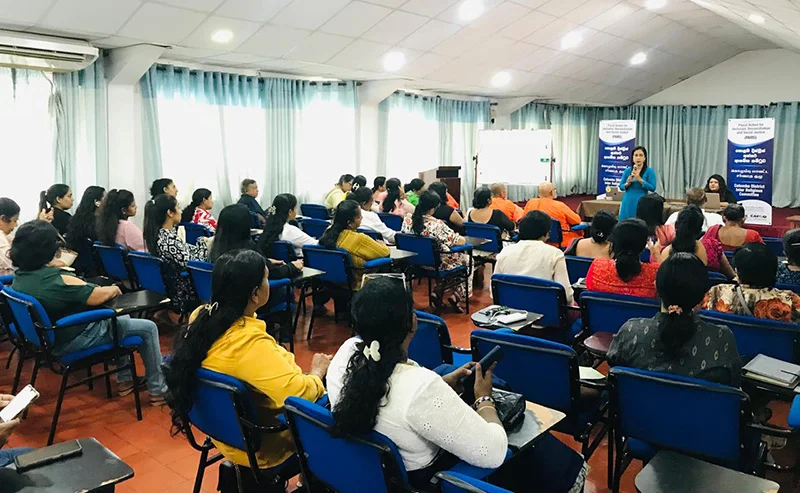
Problems and solutions in plural societies like Sri Lanka’s which have deep rooted ethnic, religious and linguistic cleavages require a consciously inclusive approach. A major challenge for any government in Sri Lanka is to correctly identify the problems faced by different groups with strong identities and find solutions to them. The durability of democratic systems in divided societies depends less on electoral victories than on institutionalised inclusion, consultation, and negotiated compromise. When problems are defined only through the lens of a single political formation, even one that enjoys a large electoral mandate, such as obtained by the NPP government, the policy prescriptions derived from that diagnosis will likely overlook the experiences of communities that may remain outside the ruling party. The result could end up being resistance to those policies, uneven implementation and eventual political backlash.
A recent survey done by the National Peace Council (NPC), in Jaffna, in the North, at a focus group discussion for young people on citizen perception in the electoral process, revealed interesting developments. The results of the NPC micro survey support the findings of the national survey by Verite Research that found that government approval rating stood at 65 percent in early February 2026. A majority of the respondents in Jaffna affirm that they feel safer and more fairly treated than in the past. There is a clear improving trend to be seen in some areas, but not in all. This survey of predominantly young and educated respondents shows 78 percent saying livelihood has improved and an equal percentage feeling safe in daily life. 75 percent express satisfaction with the new government and 64 percent believe the state treats their language and culture fairly. These are not insignificant gains in a region that bore the brunt of three decades of war.
Yet the same survey reveals deep reservations that temper this optimism. Only 25 percent are satisfied with the handling of past issues. An equal percentage see no change in land and military related concerns. Most strikingly, almost 90 percent are worried about land being taken without consent for religious purposes. A significant number are uncertain whether the future will be better. These negative sentiments cannot be brushed aside as marginal. They point to unresolved structural questions relating to land rights, demilitarisation, accountability and the locus of political power. If these issues are not addressed sooner rather than later, the current stability may prove fragile. This suggests the need to build consensus with other parties to ensure long-term stability and legitimacy, and the need for partnership to address national issues.
NPP Absence
National or local level problems solving is unlikely to be successful in the longer term if it only proceeds from the thinking of one group of people even if they are the most enlightened. Problem solving requires the engagement of those from different ethno-religious, caste and political backgrounds to get a diversity of ideas and possible solutions. It does not mean getting corrupted or having to give up the good for the worse. It means testing ideas in the public sphere. Legitimacy flows not merely from winning elections but from the quality of public reasoning that precedes decision-making. The experience of successful post-conflict societies shows that long term peace and development are built through dialogue platforms where civil society organisations, political actors, business communities, and local representatives jointly define problems before negotiating policy responses.
As a civil society organisation, the National Peace Council engages in a variety of public activities that focus on awareness and relationship building across communities. Participants in those activities include community leaders, religious clergy, local level government officials and grassroots political party representatives. However, along with other civil society organisations, NPC has been finding it difficult to get the participation of members of the NPP at those events. The excuse given for the absence of ruling party members is that they are too busy as they are involved in a plenitude of activities. The question is whether the ruling party members have too much on their plate or whether it is due to a reluctance to work with others.
The general belief is that those from the ruling party need to get special permission from the party hierarchy for activities organised by groups not under their control. The reluctance of the ruling party to permit its members to join the activities of other organisations may be the concern that they will get ideas that are different from those held by the party leadership. The concern may be that these different ideas will either corrupt the ruling party members or cause dissent within the ranks of the ruling party. But lasting reform in a plural society requires precisely this exposure. If 90 percent of surveyed youth in Jaffna are worried about land issues, then engaging them, rather than shielding party representatives from uncomfortable conversations, is essential for accurate problem identification.
North Star
The Leader of the Lanka Sama Samaja Party (LSSP), Prof Tissa Vitarana, who passed away last week, gave the example for national level problem solving. As a government minister he took on the challenge the protracted ethnic conflict that led to three decades of war. He set his mind on the solution and engaged with all but never veered from his conviction about what the solution would be. This was the North Star to him, said his son to me at his funeral, the direction to which the Compass (Malimawa) pointed at all times. Prof Vitarana held the view that in a diverse and plural society there was a need to devolve power and share power in a structured way between the majority community and minority communities. His example illustrates that engagement does not require ideological capitulation. It requires clarity of purpose combined with openness to dialogue.
The ethnic and religious peace that prevails today owes much to the efforts of people like Prof Vitarana and other like-minded persons and groups which, for many years, engaged as underdogs with those who were more powerful. The commitment to equality of citizenship, non-racism, non-extremism and non-discrimination, upheld by the present government, comes from this foundation. But the NPC survey suggests that symbolic recognition and improved daily safety are not enough. Respondents prioritise personal safety, truth regarding missing persons, return of land, language use and reduction of military involvement. They are also asking for jobs after graduation, local economic opportunity, protection of property rights, and tangible improvements that allow them to remain in Jaffna rather than migrate.
If solutions are to be lasting they cannot be unilaterally imposed by one party on the others. Lasting solutions cannot be unilateral solutions. They must emerge from a shared diagnosis of the country’s deepest problems and from a willingness to address the negative sentiments that persist beneath the surface of cautious optimism. Only then can progress be secured against reversal and anchored in the consent of the wider polity. Engaging with the opposition can help mitigate the hyper-confrontational and divisive political culture of the past. This means that the ruling party needs to consider not only how to protect its existing members by cloistering them from those who think differently but also expand its vision and membership by convincing others to join them in problem solving at multiple levels. This requires engagement and not avoidance or withdrawal.
by Jehan Perera
Features
Unpacking public responses to educational reforms
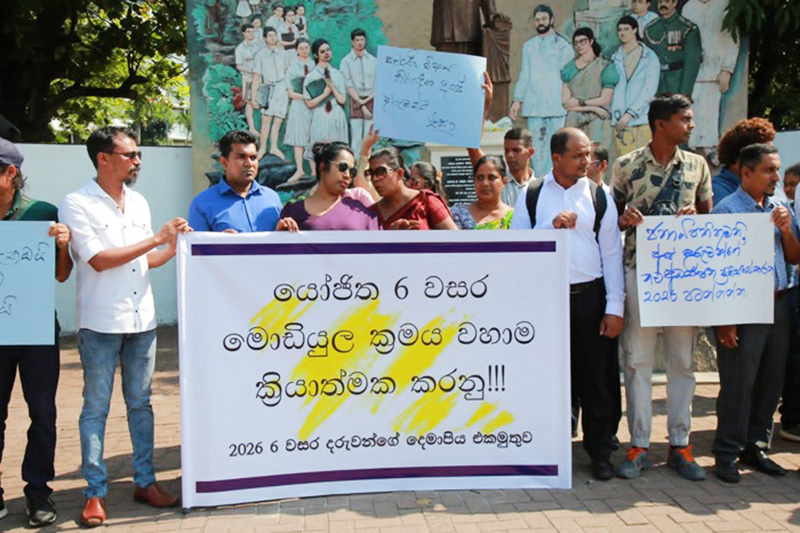
 As the debate on educational reforms rages, I find it useful to pay as much attention to the reactions they have excited as we do to the content of the reforms. Such reactions are a reflection of how education is understood in our society, and this understanding – along with the priorities it gives rise to – must necessarily be taken into account in education policy, including and especially reform. My aim in this piece, however, is to couple this public engagement with critical reflection on the historical-structural realities that structure our possibilities in the global market, and briefly discuss the role of academics in this endeavour.
As the debate on educational reforms rages, I find it useful to pay as much attention to the reactions they have excited as we do to the content of the reforms. Such reactions are a reflection of how education is understood in our society, and this understanding – along with the priorities it gives rise to – must necessarily be taken into account in education policy, including and especially reform. My aim in this piece, however, is to couple this public engagement with critical reflection on the historical-structural realities that structure our possibilities in the global market, and briefly discuss the role of academics in this endeavour.
Two broad reactions
The reactions to the proposed reforms can be broadly categorised into ‘pro’ and ‘anti’. I will discuss the latter first. Most of the backlash against the reforms seems to be directed at the issue of a gay dating site, accidentally being linked to the Grade 6 English module. While the importance of rigour cannot be overstated in such a process, the sheer volume of the energies concentrated on this is also indicative of how hopelessly homophobic our society is, especially its educators, including those in trade unions. These dispositions are a crucial part of the reason why educational reforms are needed in the first place. If only there was a fraction of the interest in ‘keeping up with the rest of the world’ in terms of IT, skills, and so on, in this area as well!
Then there is the opposition mounted by teachers’ trade unions and others about the process of the reforms not being very democratic, which I (and many others in higher education, as evidenced by a recent statement, available at https://island.lk/general-educational-reforms-to-what-purpose-a-statement-by-state-university-teachers/ ) fully agree with. But I earnestly hope the conversation is not usurped by those wanting to promote heteronormativity, further entrenching bigotry only education itself can save us from. With this important qualification, I, too, believe the government should open up the reform process to the public, rather than just ‘informing’ them of it.
It is unclear both as to why the process had to be behind closed doors, as well as why the government seems to be in a hurry to push the reforms through. Considering other recent developments, like the continued extension of emergency rule, tabling of the Protection of the State from Terrorism Act (PSTA), and proposing a new Authority for the protection of the Central Highlands (as is famously known, Authorities directly come under the Executive, and, therefore, further strengthen the Presidency; a reasonable question would be as to why the existing apparatus cannot be strengthened for this purpose), this appears especially suspect.
Further, according to the Secretary to the MOE Nalaka Kaluwewa: “The full framework for the [education] reforms was already in place [when the Dissanayake government took office]” (https://www.wsws.org/en/articles/2025/08/12/wxua-a12.html, citing The Morning, July 29). Given the ideological inclinations of the former Wickremesinghe government and the IMF negotiations taking place at the time, the continuation of education reforms, initiated in such a context with very little modification, leaves little doubt as to their intent: to facilitate the churning out of cheap labour for the global market (with very little cushioning from external shocks and reproducing global inequalities), while raising enough revenue in the process to service debt.
This process privileges STEM subjects, which are “considered to contribute to higher levels of ‘employability’ among their graduates … With their emphasis on transferable skills and demonstrable competency levels, STEM subjects provide tools that are well suited for the abstraction of labour required by capitalism, particularly at the global level where comparability across a wide array of labour markets matters more than ever before” (my own previous piece in this column on 29 October 2024). Humanities and Social Sciences (HSS) subjects are deprioritised as a result. However, the wisdom of an education policy that is solely focused on responding to the global market has been questioned in this column and elsewhere, both because the global market has no reason to prioritise our needs as well as because such an orientation comes at the cost of a strategy for improving the conditions within Sri Lanka, in all sectors. This is why we need a more emancipatory vision for education geared towards building a fairer society domestically where the fruits of prosperity are enjoyed by all.
The second broad reaction to the reforms is to earnestly embrace them. The reasons behind this need to be taken seriously, although it echoes the mantra of the global market. According to one parent participating in a protest against the halting of the reform process: “The world is moving forward with new inventions and technology, but here in Sri Lanka, our children are still burdened with outdated methods. Opposition politicians send their children to international schools or abroad, while ours depend on free education. Stopping these reforms is the lowest act I’ve seen as a mother” (https://www.newsfirst.lk/2026/01/17/pro-educational-reforms-protests-spread-across-sri-lanka). While it is worth mentioning that it is not only the opposition, nor in fact only politicians, who send their children to international schools and abroad, the point holds. Updating the curriculum to reflect the changing needs of a society will invariably strengthen the case for free education. However, as mentioned before, if not combined with a vision for harnessing education’s emancipatory potential for the country, such a move would simply translate into one of integrating Sri Lanka to the world market to produce cheap labour for the colonial and neocolonial masters.
According to another parent in a similar protest: “Our children were excited about lighter schoolbags and a better future. Now they are left in despair” (https://www.newsfirst.lk/2026/01/17/pro-educational-reforms-protests-spread-across-sri-lanka). Again, a valid concern, but one that seems to be completely buying into the rhetoric of the government. As many pieces in this column have already shown, even though the structure of assessments will shift from exam-heavy to more interim forms of assessment (which is very welcome), the number of modules/subjects will actually increase, pushing a greater, not lesser, workload on students.
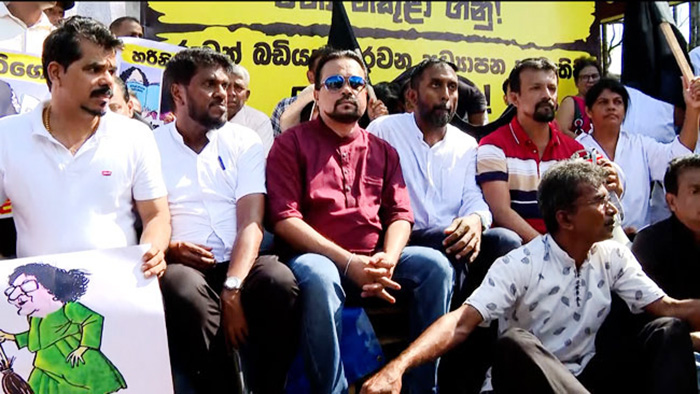
A file photo of a satyagraha against education reforms
What kind of education?
The ‘pro’ reactions outlined above stem from valid concerns, and, therefore, need to be taken seriously. Relatedly, we have to keep in mind that opening the process up to public engagement will not necessarily result in some of the outcomes, those particularly in the HSS academic community, would like to see, such as increasing the HSS component in the syllabus, changing weightages assigned to such subjects, reintroducing them to the basket of mandatory subjects, etc., because of the increasing traction of STEM subjects as a surer way to lock in a good future income.
Academics do have a role to play here, though: 1) actively engage with various groups of people to understand their rationales behind supporting or opposing the reforms; 2) reflect on how such preferences are constituted, and what they in turn contribute towards constituting (including the global and local patterns of accumulation and structures of oppression they perpetuate); 3) bring these reflections back into further conversations, enabling a mutually conditioning exchange; 4) collectively work out a plan for reforming education based on the above, preferably in an arrangement that directly informs policy. A reform process informed by such a dialectical exchange, and a system of education based on the results of these reflections, will have greater substantive value while also responding to the changing times.
Two important prerequisites for this kind of endeavour to succeed are that first, academics participate, irrespective of whether they publicly endorsed this government or not, and second, that the government responds with humility and accountability, without denial and shifting the blame on to individuals. While we cannot help the second, we can start with the first.
Conclusion
For a government that came into power riding the wave of ‘system change’, it is perhaps more important than for any other government that these reforms are done for the right reasons, not to mention following the right methods (of consultation and deliberation). For instance, developing soft skills or incorporating vocational education to the curriculum could be done either in a way that reproduces Sri Lanka’s marginality in the global economic order (which is ‘system preservation’), or lays the groundwork to develop a workforce first and foremost for the country, limited as this approach may be. An inextricable concern is what is denoted by ‘the country’ here: a few affluent groups, a majority ethno-religious category, or everyone living here? How we define ‘the country’ will centrally influence how education policy (among others) will be formulated, just as much as the quality of education influences how we – students, teachers, parents, policymakers, bureaucrats, ‘experts’ – think about such categories. That is precisely why more thought should go to education policymaking than perhaps any other sector.
(Hasini Lecamwasam is attached to the Department of Political Science, University of Peradeniya).
Kuppi is a politics and pedagogy happening on the margins of the lecture hall that parodies, subverts, and simultaneously reaffirms social hierarchies.
Features
Chef’s daughter cooking up a storm…

 Don Sherman was quite a popular figure in the entertainment scene but now he is better known as the Singing Chef and that’s because he turns out some yummy dishes at his restaurant, in Rajagiriya.
Don Sherman was quite a popular figure in the entertainment scene but now he is better known as the Singing Chef and that’s because he turns out some yummy dishes at his restaurant, in Rajagiriya.
However, now the spotlight is gradually focusing on his daughter Emma Shanaya who has turned out to be a very talented singer.
In fact, we have spotlighted her in The Island a couple of times and she is in the limelight, once gain.
When Emma released her debut music video, titled ‘You Made Me Feel,’ the feedback was very encouraging and at that point in time she said “I only want to keep doing bigger and greater things and ‘You Made Me Feel’ is the very first step to a long journey.”
Emma, who resides in Melbourne, Australia, is in Sri Lanka, at the moment, and has released her very first Sinhala single.
“I’m back in Sri Lanka with a brand new single and this time it’s a Sinhalese song … yes, my debut Sinhala song ‘Sanasum Mawana’ (Bloom like a Flower).
“This song is very special to me as I wrote the lyrics in English and then got it translated and re-written by my mother, and my amazing and very talented producer Thilina Boralessa. Thilina also composed the music, and mix and master of the track.”
Emma went on to say that instead of a love song, or a young romance, she wanted to give the Sri Lankan audience a debut song with some meaning and substance that will portray her, not only as an artiste, but as the person she is.
Says Emma: “‘Sanasum Mawana’ is about life, love and the essence of a woman. This song is for the special woman in your life, whether it be your mother, sister, friend, daughter or partner. I personally dedicate this song to my mother. I wouldn’t be where I am right now if it weren’t for her.”
On Friday, 30th January, ‘Sanasum Mawana’ went live on YouTube and all streaming platforms, and just before it went live, she went on to say, they had a wonderful and intimate launch event at her father’s institute/ restaurant, the ‘Don Sherman Institute’ in Rajagiriya.
It was an evening of celebration, good food and great vibes and the event was also an introduction to Emma Shanaya the person and artiste.
Emma also mentioned that she is Sri Lanka for an extended period – a “work holiday”.
“I would like to expand my creativity in Sri Lanka and see the opportunities the island has in store for me. I look forward to singing, modelling, and acting opportunities, and to work with some wonderful people.
“Thank you to everyone that is by my side, supporting me on this new and exciting journey. I can’t wait to bring you more and continue to bloom like a flower.”
-

 Life style3 days ago
Life style3 days agoMarriot new GM Suranga
-

 Business2 days ago
Business2 days agoMinistry of Brands to launch Sri Lanka’s first off-price retail destination
-

 Features3 days ago
Features3 days agoMonks’ march, in America and Sri Lanka
-

 Midweek Review7 days ago
Midweek Review7 days agoA question of national pride
-

 Business7 days ago
Business7 days agoAutodoc 360 relocates to reinforce commitment to premium auto care
-

 Opinion6 days ago
Opinion6 days agoWill computers ever be intelligent?
-

 Features3 days ago
Features3 days agoThe Rise of Takaichi
-

 Features3 days ago
Features3 days agoWetlands of Sri Lanka:


